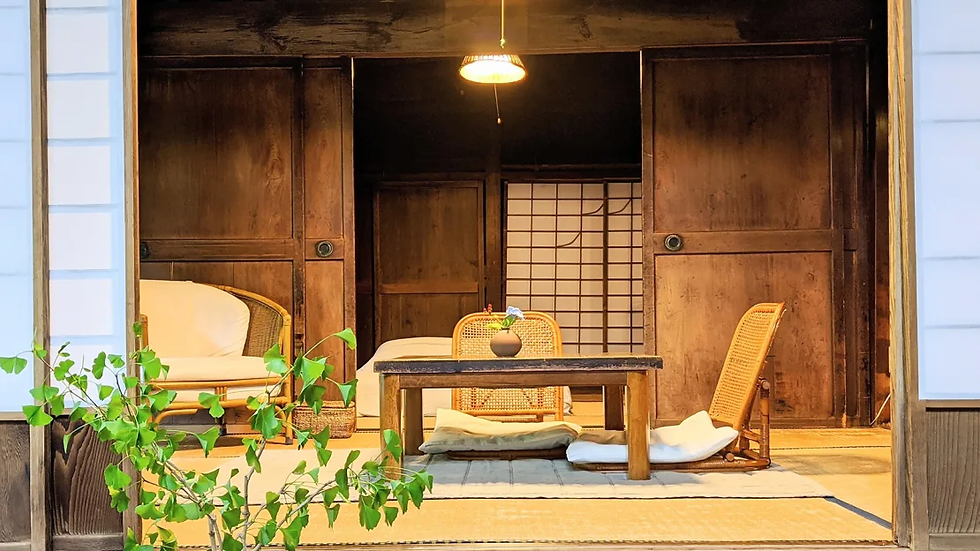Couple transforms abandoned Japanese home into guesthouse
- term1 class3group4
- Nov 1, 2023
- 3 min read
He’d spent years backpacking around the world, and Japanese traveler Daisuke Kajiyama was finally ready to return home to pursue his long-held dream of opening up a guesthouse.
In 2011, Kajiyama arrived back in Japan with his Israeli partner Hila, who he met in Nepal, and the pair set about finding the perfect location for their future venture.

When he was unable to find anything that met his requirements, Kajiyama decided to shift his search to include the growing number of abandoned homes in the country.
As younger people ditch rural areas in pursuit of jobs in the city, Japan’s countryside is becoming filled with “ghost” houses, or “akiya.”
According to the Japan Policy Forum, there were 61 million houses and 52 million households in Japan in 2013, and with the country’s population expected to decline from 127 million to about 88 million by 2065, this number is likely to increase.
Kajiyama was driving around Tamatori, a small village located in the Shizuoka prefecture, between Kyoto and Tokyo, surrounded by green tea plantations and rice fields, when he came across an elderly woman farming, and decided to approach her.
“I said ‘Do you know if there are any empty houses around here?’ And she just pointed,” he recalls.
He looked over at the area that she was signaling to and spotted two neglected houses side by side – a former green tea factory and an old farmer’s home – located close to a river.
Both properties had been uninhabited for at least seven years and needed a huge amount of work. Kajiyama asked the woman to contact the owner to find out if they’d be interested in selling.
“The owner said that no one could live there, as it was abandoned,” he says. “But he didn’t say ‘no.’ Everybody was always saying ‘no.’ But he didn’t. So I felt there was a small chance.”

He says he received some financial support from the government, which meant he was able to bring in a carpenter and also benefited from Japan’s working holiday program, which allows travelers to work in exchange for food and board, when he needed extra help.
After doing some research into Japanese guesthouse permits, he discovered that one of the simplest ways to acquire one would be to register the property as an agriculture guesthouse.
As the area is filled with bamboo forests, this seemed like a no-brainer, and Kajiyama decided to learn everything he could about bamboo farming so that he could combine the two businesses.
“This is how I started farming,” he says.
In 2014, two years after they began working on the house, the couple were finally able to welcome their first guests.
“It was a beautiful feeling,” says Kajiyama. “Of course, this was my dream. But people really appreciate that it was abandoned and I brought it back to life.”
He says that hosting guests from all over the world has helped him to stay connected to his former life as a backpacker.
“I stay in one place, but people come to me and I feel like I’m traveling,” he says. “Today, it’s Australia, tomorrow it’s the UK and next week South Africa and India.
“People come from different places and they invite me to join them for dinner, so sometimes I join someone’s family life.”
Sadly, Hila passed away from cancer in 2022. Kajiyama stresses that his beloved wife played a huge part in helping him achieve his dream of having a guesthouse and says he couldn’t have done it without her.
“We were really together,” he adds. “She created this place with me. Without her it would not have been like this.”
While the three-bedroom guesthouse, which measures around 80 square meters, has been open for around eight years, Kajiyama is still working on it, and says he has no idea when he’ll be finished.
“It’s never ending,” he admits. “I’m halfway, I feel. It is beautiful already. But it started off abandoned, so it needs more details. And I’m getting better at creating, so I need time to do it.”

Sources: CNN.com






Comments